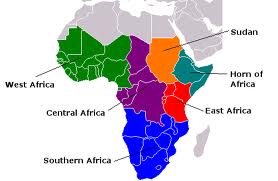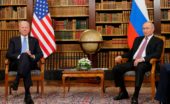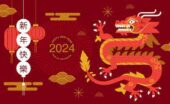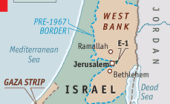Re Ian Bremmer 'Could third-party candidates upend the 2024 US election?' 3 April The current political movement in the USA…
Sub-Saharan Africa: Conflict and governance (2011)
Written by Diana Thebaud Nicholson // December 28, 2011 // Africa, Natural resources, Sub-Saharan Africa, Terrorism // 1 Comment

Africa 2011: top stories for the year to come
A look ahead at the Africa stories that will be in the news in 2011.
(Global Post) Rebels, elections, presidents who don’t want to give up power, oil and diamonds: There are many stories from Africa that will capture world headlines in 2011.
Africa, China, the United States, and Oil ;
Centre for Strategic and International Studies (CSIS) Africa Policy Forum
A thoughtful article that goes a long way towards explaining conflict in and between nations – in Africa and many other parts of the world. The Revenge of Geography : People and ideas influence events, but geography largely determines them, now more than ever. To understand the coming struggles, it’s time to dust off the Victorian thinkers who knew the physical world best. A journalist who has covered the ends of the Earth offers a guide to the relief map—and a primer on the next phase of conflict. (Foreign Policy May/June 2009)
Unfortunately, this “curse of oil” now threatens to affect countries rich in other resources as well: uranium in Niger and Namibia, for example. It’s going to be quite a challenge for African oil-producers and other energy suppliers to hold governments accountable. Some are saying now that the constitutional crisis in Niger and President Tandja’s desire to extend his mandate are directly related to elites wanting control over uranium supplies. I hope systems for sharing wealth equitably are created, otherwise we may see more resource conflict, more corruption, and more political tension in many African countries. –Posted by Alex Thurston (Reuters 9 July 2009)
++++++++++++
Nigeria Boko Haram clashes: ‘Thousands flee Damaturu’
(BBC) About 90,000 people have been displaced in clashes between militant Islamists and the security forces in Nigeria’s Damaturu city, an official has said.
The Boko Haram group and troops were involved in heavy gun battles in the north-eastern city last week.
The militants also planted bombs in Damaturu and outside a church near the capital, Abuja, on Christmas Day.
26 December
Nigerian opposition says leaders incapable of stopping bloodshed
(RCI) Nigeria’s main opposition leader is accusing the government of incompetence after Islamist militants killed more than two dozen people in Christmas Day attacks on churches and other targets. Muhammadu Buhari, a northerner and former military ruler who lost a presidential election in April to incumbent Goodluck Jonathan, a Christian southerner, told a Nigerian daily that the government was slow to respond and had shown indifference to the bloodshed.
The Boko Haram Islamist sect, which aims to impose sharia, Islamic law, across Africa’s most populous country, claimed responsibility. Canada’s Foreign Affairs Minister John Baird has denounced the attacks, saying it’s unacceptable that they targeted individuals attending religious services on Christmas Day.
A Crisis in the Congo
Why is the West so willing to look the other way when it comes to the Democratic Republic of the Congo’s clearly flawed election results?
Nothing underscores the apathy and inconsistency that characterize Western diplomacy in Congo more than the current impasse between incumbent President Joseph Kabila and veteran opposition leader Etienne Tshisekedi, each of whom has claimed victory in the Nov. 28 presidential polls. The legitimacy crisis threatens to trigger another round of civil war in a country that has already lost over six million of its people to the repercussions from a long and senseless conflict.
11 December
Congo election: Two men declare themselves president
International observers reject the Congo election results that put President Joseph Kabila on top. His main rival, meanwhile, declares himself president.
7 November
Some small signs that the ‘Arab Spring’ is spreading into Africa
The ‘Arab Spring’ has largely not spread south of the Sahara, but Africans are now less willing to stand by and accept stolen elections, gross abuses of power, and flaunting of inequality.
(CSM) Many observers have lamented that the mass protests and revolutions of the Arab Spring have not swept south through Sub-Saharan Africa. The common conclusion is that Africa is not ready for its own democratic leap forward. Africans are too poor, too fragmented, and too weak institutionally to mount the reform campaigns needed to make progress at this time, they reason. Put simply, hungry people don’t have time to worry about democracy.
Yet such a conclusion is mistaken. This past year has seen noteworthy democratic breakthroughs in long autocratic Guinea, Cote d’Ivoire, and Niger. These gains have been augmented by decisive strides forward in Nigeria, Africa’s most populous country, and Zambia.
Oil Minister Allison Madueke Buys 20 Million Euro Mansion In Vienna, Austria-EFCC Take Note
Here is the full translated version of the [German] text as reported by the newspaper:
“Big turbulence about the Nigerian Oil Minister Diezani Allison-Madueke (50)! According to Nigerian media the politician is said to have bought a villa in Vienna for just under 20 Million Euro – even though a major part of the population in her home country is living below the poverty line and children are dying daily of starvation. The exact location of her luxury lodging is secret, but Allison-Madueke is enthusiastic about the big garden and the estate referring to it in the internet as “architectonic masterpiece”. One of her neighbors is said to be former OPEC boss Rilwanu Lukman who is also from Nigeria.”
4 October
Was South Africa right to deny Dalai Lama a visa?
(Reuters) Given that China is South Africa’s biggest trading partner and given the close relationship between Beijing and the ruling African National Congress, it didn’t come as a huge surprise that South Africa was in no hurry to issue a visa to the Dalai Lama. South Africa will certainly win more plaudits in Beijing, which last week agreed to $2.5 billion in investment projects with during a visit by South African Deputy President Kgalema Motlanthe. The Comments below the article are worth reading.
UN gains limited access to Sudan border area
The government of Sudan has relented somewhat in its refusal to grant access to the United Nations to parts of South Kordofan, the scene of looting and fierce clashes between the military and armed groups aligned with the soon-to-be-independent south. Aid agencies were permitted to visit looted offices in the capital, Kadugli, but prohibited from meeting with some 7,000 civilians ordered by authorities last week to leave the UN compound where they had sought safety. Google/The Associated Press (6/30), Reuters (6/30)
6 June
Zimbabwe ‘phantom voters’ exposed
(BBC) A leaked version of Zimbabwe’s voters’ roll contains some 2.6m too many names, according to a report by a respected South African organisation. … There are more than 41,000 people aged over 100 – four times more than in the UK, which has a far larger population and far longer life expectancy.
2 May
Sierra Leone: Growing Pains for Local Councils
(IPS) Sierra Leone re-introduced local government councils in 2004 after a 30-year absence; the experience of the last six years is prompting questions about how to successfully introduce effective democratic authority and responsiveness at the local level in a country where few have experience of active participation in governance.
Devolution of responsibility to local councils is behind schedule, with responsibility for key services such as water and waste management and infrastructure like roads among the important areas remaining under the central government’s control.
26 April
Tensions rise ahead of Nigerian poll
Tensions run high in Nigeria a week after political violence killed hundreds in the wake of April 16’s presidential election, which exposed religious and ethnic divisions
24 April
Nigeria election violence ‘left more than 500 dead’ (Sadly, Nigeria is still not “out of the woods”)
(BBC) Rioting broke out when it emerged that Goodluck Jonathan, a southern Christian – had defeated a Muslim candidate from the mostly Islamic north. Tens of thousands of people have fled their homes to escape the violence.
17 April
Nigeria election mostly smooth
Some irregularity in vote seen as test of credibility
(Boston Globe) Nigerians chose their president in an election yesterday many hoped would show how Africa’s most populous nation could hold a credible vote without the violence and rigging that marred previous ones, though children cast ballots and party officials helped others press their inked fingers to paper.
15 April
Nigeria’s president fights for survival as nation turns against party of power
Goodluck Jonathan may win election despite the unpopularity of the People’s Democratic party
(The Guardian) Welcome to Nigerian democracy, three weekends of voting that will change the political climate in Africa’s most populous nation. Last weekend they voted for parliamentarians; next weekend it will be for governors. This weekend is the big one: a presidential race likely to install Goodluck Jonathan, a steady former zoology lecturer, as the country’s third elected president in the 16 years since military rule ended.
… The conduct and integrity of elections in the post-military era have grown progressively worse. The 2007 poll was a violent farce, universally condemned. This time Nigerians were told it would be different. … Last Saturday, northerners and southerners voted for different parties but both voted massively against the perennial party of power … although 117 ballot boxes were reported stolen, it looks as if people voted freely and knew what they were doing. The process was – at the polling station stage – remarkably transparent. As each one closed the ballots were counted in public, each one held up for the crowd to see, its chosen party read out then placed in a pile. Then each pile was counted out loud, “One … two … three …”, the crowd joining in the chant. The final result was thoroughly photographed and texted by mobile phone. It is hard to see how those results could be falsified.
From potentate to prisoner
Laurent Gbagbo, the former president, is at last taken out of action—but will his country right itself?
UN, guarding Gbagbo, begins human rights probe
The UN has issued a statement saying that none of its peacekeepers in Cote d’Ivoire participated in the arrest Monday of incumbent President Laurent Gbagbo, who has since requested protection from the world body, which is investigating allegations of human rights abuses. UN Secretary-General Ban Ki-moon said that Gbagbo’s safety should be ensured Reuters (4/12), CBC.ca (Canada)/The Associated Press (4/11)
Gbagbo reportedly arrested in Abijdan Finally!
Laurent Gbagbo was arrested today, reportedly by troops loyal to elected Cote d’Ivoire President Alassane Ouattara. However, Gbago’s supporters said the operation was conducted by French troops. The news came after UN peacekeepers in Cote d’Ivoire took the fight to Gbagbo loyalists, shelling the Golf Hotel in Abidjan. UN Secretary-General Ban Ki-moon said he ordered the military response, together with French forces, in order “to prevent the use of heavy weapons which threaten the civilian population of Abidjan and our peacekeepers.” The Washington Post (4/11), CNN (4/11), The Guardian (London) (4/11)
UN works to quell Sudan’s Abyei battle
United Nations officials have ordered additional peacekeepers into Sudan’s disputed Abyei border areas after renewed violence that left dozens dead. The UN plans to hold consultations with both north and south Sudan over hostilities in the resource-rich area, which both sides claim ownership over. AlertNet/Reuters (3/4)
Watching revolution is a crime in Zimbabwe
Authorities in Zimbabwe have arrested 46 students, trade unionists and political activists who had assembled to watch prerecorded foreign news broadcasts of Mideast uprisings on suspicion of plotting the overthrow of longtime President Robert Mugabe. A human rights lawyer said the event, which was organized in part by a law school professor, was intended to generate academic debate after showing images of the Egyptian and Tunisian revolutions to those who did not have access to the Internet or cable television. The New York Times (free registration) (2/21)
Gadhafi’s dying dream for African unity
(Globe & Mail) … behind the absurd titles, behind the crown and sceptre that were awarded to him by his hand-picked collection of African tribal monarchs, Col. Gadhafi had a profound impact on Africa. And for better or worse, he will leave a vacuum behind him on the African landscape if he is toppled from power in Libya.
Col. Gadhafi was the last major global leader who promoted the dream of pan-African unity. He had his own self-interested reasons for this quixotic campaign, of course, since his own ambition was to become the powerful ruler of a new United States of Africa. But his disappearance from the political stage would remove the last remaining enthusiast for a European-style political union in Africa.
10 February
Angola’s wealth: Mine, all mine
After three decades in power, José Eduardo dos Santos is presiding over a resource boom. But too few Angolans are seeing the benefits
(The Economist) without political change, the poor majority will benefit little. Not surprisingly, public anger has been building. Protests flared last month in Cazenga, a district of Luanda that has traditionally been an MPLA stronghold. Separatists in the province of Cabinda, who made headlines by shooting at the Togolese team during the African cup, are increasingly active. Soldiers complain that generals steal so much of the army’s budget that they don’t get boots any more. Oddly, even one of the president’s daughters has lashed out—at oligarchs who she said have created “the biggest number of tentacles possible to sabotage or destroy competing businesses”. Nervous Western oil companies give millions to local schools and hospitals to avoid being tarred with the same brush.
An uprising is unlikely, since memories of the civil war that killed 1.5m people are still fresh.
9 February
West ‘facilitates corruption in Africa’ says top economist
There hasn’t been enough discussion of secret bank accounts as corruption facilitators.
(CNN) — Industrialized countries have been enabling corruption in Africa by providing crooked officials with a haven for their money, according to Nobel economics laureate Joseph Stiglitz.
The former World Bank chief economist, one of the few economists to foresee the global financial crisis, was among the speakers at this year’s Global Poverty Summit, held in Johannesburg.
Southern Sudanese claim independence
Sudanese President Omar al-Bashir said Monday his government would accept the final results of a January referendum in southern Sudan that saw voters overwhelmingly endorse independence. Across southern Sudan, 98.83% of voters backed the bid to create a new country come July. American officials indicated the U.S. will recognize southern Sudan as a country and will review Sudan’s designation as a state sponsor of terrorism. The New York Times (free registration) (2/7) , AlertNet/Reuters (2/7) , The Toronto Star/The Associated Press (2/7)
Campaign is under way to target Gbagbo with UN sanctions
British, French and U.S. representatives at the Security Council have launched a joint campaign to impose United Nations sanctions against Cote d’Ivoire President Laurent Gbagbo. The measure would require unanimous support, and Russia has already expressed reservations. Gbagbo is under international pressure to step down after results from Cote d’Ivoire’s November vote showed him losing the election. Bloomberg (2/4)
31 January
African Union concerned over protests
(FT) The spectre of contagion from the north African protests haunts the summit of the 53-member group in Addis Ababa, and has lent an air of urgency to efforts to resolve political upheavals south of the Sahara
27 January
While everyone was watching developments in the Arab world in the Ivory Coast: Gbagbo grabs bank in power struggle
(The Independent) Incumbent leader Laurent Gbagbo has ordered the seizure of the central bank’s regional offices in Ivory Coast in an attempt to retain control of state finances after being cut off from the money after disputed elections.
24 January
Zimbabwe police ‘thwart property invasion’
(AFP) – Zimbabwean police drove out scores of so-called war veterans and supporters of President Robert Mugabe after they declared themselves new owners of several tourist resorts, a minister and media reports said Monday. The seizures on Saturday near Lake Chivero, west of the capital Harare, were ostensibly part of Mugabe’s land reforms, launched in 2000 in what he described as a bid to correct ownership imbalances in the former British colony.
South Sudan separatists claim landslide
(FT) More than 99 per cent of voters in southern Sudan’s referendum have backed separation from the north, according to partial results
19 January
Survey shows South Sudanese poll tilts for independence
A poll by the Reuters news agency confirms that voters last week overwhelmingly chose independence from the north in at least nine of 10 states in South Sudan. Meanwhile, in the north, protesters were attacked by riot police in Khartoum after demanding the release of opposition leader Hassan al-Turabi, who was detained after called for a popular revolt. AlertNet/Reuters (1/19) , Reuters (1/19)
11 January
Sudan referendum likely to redefine Africa’s politics: interview
(Xinhua) — As the southern Sudan referendum enters day two, … Mwambustya Ndebesa, a history lecturer at Uganda’s top university Makerere University, told Xinhua in an interview recently that increased oil interest, Islamic/Christian fundamentalisms, and usage of River Nile waters among other key issues will confront the new state and the continent.
South Sudanese vote for second day
(Al Jazeera) As referendum on whether to split from the north continues, Khartoum ‘pledges’ to assume country’s $38bn foreign debt.
9 January
World envoys are arriving in Sudan for independence vote
Envoys from countries worldwide, some of whom helped broker the peace deal in 2005 that ended a long-running civil war, were arriving in Sudan on the eve of a referendum that is likely to divide the country into two. The government has continued to reject an offer of an additional 2,000 UN troops, saying fears of renewed civil war between the north and south are no longer justified. Google/Agence France-Presse (1/7) , Reuters (1/6)
5 January
CANADA WANTS RESUMPTION OF DARFUR NEGOTIATONS
( RCI) Canada has called on the government of Sudan to resume participation in the peace talks for Darfur region that had begun in Doha. Foreign Minister Lawrence Cannon says Canada is disappointed in the Khartoum government’s decision to withdraw, particularly because it comes just days after the biggest Darfurian rebel movement, the Movement for Justice and Equality, joined the talks. The minister added that Canada is worried by the recent escalation of violence in Darfur both on the part of the Sudanese military and the insurgents. Since 2006, Canada has invested more than $800 million for peace, humanitarian aid and security in Sudan.
Despite gloomy forecasts, Sudan vote could come off without war
Chances are diminishing that a civil war will start anew after the scheduled Jan. 9 referendum on independence for southern Sudan. Neither Islamists in the north, nor former rebels in the south, appear to have the stomach for more war even though the south is likely to split the county in two, and to take most of the country’s oil with it. The New York Times(1/2)
Mali looks to development to counter militancy
Malian authorities are rolling out a new national development plan to improve infrastructure, increase access to education and create jobs in a bid to battle militancy and drug trafficking. Mali has been battling in recent years to limit an infiltration of al-Qaida fighters into the country. The New York Times (1/1)




One Comment on "Sub-Saharan Africa: Conflict and governance (2011)"
[This] Libyan Oil Buys Allies for Qaddafi is typical of the superficial, somewhat sensationalist and misleading coverage of sub-Saharan Africa that one finds in most establishment media – even including the NYT.
My conversations with Africans indicate that for the most part they are not at all sympathetic to Qaddafi – that they find him and his problems irrelevant to their concerns and Yes, it’s true that several of the hotels in Bamako are owned (but not necessarily operated) by Libyan interests; yes, it’s true that Oilibya petrol stations are ubiquitous all over the continent; but this hardly ensures loyalty or even sympathy (think PetroCanada). On the other hand the big government office complex described in the article is somewhat of an embarrassment for all concerned: it is many years behind schedule and is still not complete; it was left in a half-finished, dusty and abandoned state from 2007 to 2010 due to contractual and payment conflicts between the two governments – hardly the stuff to inspire the masses.
With respect to the Touareg Tuaregs ‘join Gaddafi’s mercenaries’ (or Tamasheq – to use the term they prefer) people, that is a different story. First of all, it wouldn’t surprise me to learn that Qaddafi is himself part Tamasheq – he certainly has the look of one. These nomadic people have inhabited and managed to survive in the inhospitable environment of the Sahara since Roman times. Many of them simply do not recognize the legitimacy of the various countries and boundaries that were created by various outside interests with absolutely no participation on their part and no recognition of their own existence. On top of that, for the most part they receive little or no benefit from the mining and extraction activities (uranium in Niger, gold and perhaps oil in Mali, etc.) being pursued in what they consider to be their country. Further, their ancient livelihood of escorting and protecting trans-Saharan caravans has pretty well disappeared and like many nomadic peoples around the world, they often come into conflict with sedentary agricultural populations (e.g. like the Songhay and Bambara and others along the fertile Niger River in Mali). And finally, theirs is somewhat of a warrior society where kidnapping is an ancient mode of negotiating: you capture someone from your counterpart’s family or clan and then you can sit down and bargain – or you can sell the captive as a slave. Bottom line – for many Tamasheq there is no reason why they shouldn’t do business with someone who pays them for hostages and sells them arms. They probably have no idea of the reasons behind the Libyan uprising and in any event probably consider it to be none of their business. As usual, however, the Western media assume that our concerns should be those of the rest of the world regardless of whether others benefit or not.
As for the other Africans, 1000$/day is probably more than an individual will see in a year but in the end money will not buy loyalty and once the tide (hopefully) turns they will not stick around – especially if offered some sort of amnesty. There are plenty of stories of Africans having been treated like garbage when coming to Libya to look for work. (How Qaddafi helped fuel fury toward Africans in Libya)